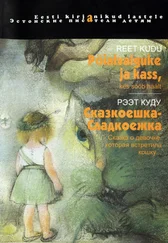For my parents and grandparents, who taught me to look at both the world and words with wonder
No one wanted to stand near the grave. Although four of their own were already buried in the makeshift cemetery, the rest of the hundred were still disturbed by the idea of lowering a body into the ground.
No one wanted to stand with their backs to the trees either. Since the attack, a creaking branch had become enough to make the anxious survivors jump. And so, the nearly one hundred people who’d gathered to say good-bye to Asher stood in a tightly packed semicircle, their eyes darting between the corpse on the ground and the shadows in the forest.
The comforting crackle of the fire was conspicuously absent. They’d run out of firewood last night, and no one had been willing to venture out for more. Wells would’ve gone himself, but he’d been busy digging the grave. No one had volunteered for that job either, except for a tall, quiet Arcadian boy named Eric.
“Are we sure he’s really dead?” Molly whispered, edging back from the deep hole, as if worried it might swallow her up as well. She was only thirteen but looked younger. At least, she’d used to. Wells remembered helping her after the crash, when tears and ash had streaked her round cheeks. Now the girl’s face was thin, almost gaunt, and there was a cut on her forehead that didn’t look like it’d been properly cleaned.
Wells’s eyes flashed involuntarily to Asher’s neck, to the ragged wound where the arrow had pierced his throat. It’d been two days since Asher died, two days since the mysterious figures materialized on the ridge, upending everything the Colonists had ever been told, everything they thought they knew.
They had been sent to Earth as living test subjects, the first people to set foot on the planet in three hundred years. But they were mistaken.
Some people had never left.
It had all happened so quickly. Wells hadn’t realized anything was wrong until Asher fell to the ground, gagging as he swiped desperately at the arrow lodged in his throat. That’s when Wells spun around—and saw them. Silhouetted against the setting sun, the strangers looked more like demons than humans. Wells had blinked, half expecting the figures to vanish. There was no way they were real.
But hallucinations didn’t shoot arrows.
After his calls for help went unheeded, Wells had carried Asher to the infirmary tent, where they stored the medical supplies they’d salvaged from the fire. But it was no use. By the time Wells began frantically digging for bandages, Asher was already gone.
How could there be people on Earth? It was impossible. No one had survived the Cataclysm. That was incontrovertible, as deeply ingrained in Wells’s mind as the fact that water froze at 0 degrees Celsius, or that planets revolved around the sun. And yet, he’d seen them with his own eyes. People who certainly hadn’t come down on the dropship from the Colony. Earthborns .
“He’s dead,” Wells said to Molly as he rose wearily to his feet before realizing that most of the group was staring at him. A few weeks ago, their expressions would’ve been full of distrust, if not outright contempt. No one believed that the Chancellor’s son had actually been Confined. It’d been all too easy for Graham to convince them that Wells had been sent to spy for his father. But now, they were looking at him expectantly.
In the chaos after the fire, Wells had organized teams to sort through the remaining supplies and start building permanent structures. His interest in Earth architecture, once a source of annoyance to his pragmatic father, had enabled Wells to design the three wooden cabins that now stood in the center of the clearing.
Wells glanced up at the darkening sky. He’d give anything to have the Chancellor see the cabins eventually. Not to prove a point—after seeing his father shot on the launch deck, Wells’s resentment had drained faster than the color from the Chancellor’s cheeks. Now he only wished his father would someday get to call Earth home. The rest of the Colony was supposed to join them once conditions on Earth were deemed safe, but twenty-one days had passed without so much as a glimmer from the sky.
As Wells lowered his eyes back to the ground, his thoughts returned to the task at hand: saying farewell to the boy they were about to send to a much darker resting place.
A girl next to him shivered. “Can we move this along?” she said. “I don’t want to stand out here all night.”
“Watch your tone,” another girl named Kendall snapped, her delicate lips drawn into a frown. At first, Wells had assumed she was a fellow Phoenician, but he’d eventually realized that her haughty stare and clipped cadence were just an impression of the girls Wells had grown up with. It was a fairly common practice among young Waldenites and Arcadians, although he’d never met anyone who did it quite as well as Kendall.
Wells turned his head from side to side, searching for Graham, the only other Phoenician aside from Wells and Clarke. He didn’t generally like letting Graham take control of the group, but the other boy had been friends with Asher and was better equipped than Wells to speak at his funeral. However, his was one of the few faces missing from the crowd—aside from Clarke’s. She’d set off right after the fire with Bellamy to search for his sister, leaving nothing but the memory of the five toxic words she’d hurled at Wells before she left: You destroy everything you touch .
A crack sounded from the woods, unleashing gasps from the crowd. Without thinking, Wells pulled Molly behind him with one arm and grabbed a shovel with the other.
A moment later, Graham stepped into the clearing, flanked by two Arcadians—Azuma and Dmitri—and a Walden girl named Lila. The three boys were carrying armfuls of wood, while Lila had a few branches tucked under her arm.
“So that’s where the other axes went,” a Waldenite named Antonio said, eyeing the tools slung over Azuma’s and Dmitri’s shoulders. “We could’ve used those this afternoon, you know.”
Graham raised an eyebrow as he surveyed the newest cabin. They were finally getting the hang of it; there were no gaps in the roof this time, which meant it would be much warmer and drier at night. None of the structures had windows, though. They were too time-consuming to cut, and without access to glass or plastic, they would be little more than gaping holes in the walls.
“Trust me, this is more important,” Graham said, raising the pile of wood in his arms.
“Firewood?” Molly asked. She flinched as Graham snorted.
“No, spears . A few wooden shacks aren’t going to keep us safe. We need to defend ourselves. The next time those bastards show up, we’ll be ready.” His eyes settled on Asher, and an unfamiliar expression flitted across Graham’s face. His customary veneer of anger and arrogance had cracked, revealing something like real grief.
“Do you want to join us for a minute?” Wells asked, softening. “I thought we’d say a few words for Asher. You knew him well, so maybe you’d like to—”
“It seems like you have everything under control,” Graham cut him off, avoiding Asher’s body as he met Wells’s eyes. “Carry on, Chancellor.”
By the time the sun had fully set, Wells and Eric were placing the final shovelfuls of dirt on the new grave while Priya wrapped flowers around the wooden marker. The rest of the group had drifted away, either to avoid watching the actual burial or to stake out a spot in one of the new cabins. Each could fit about twenty comfortably, thirty if people were too tired—or too cold—to complain about errant legs sprawled across their mound of charred blankets, or the odd elbow to the face.
Читать дальше













